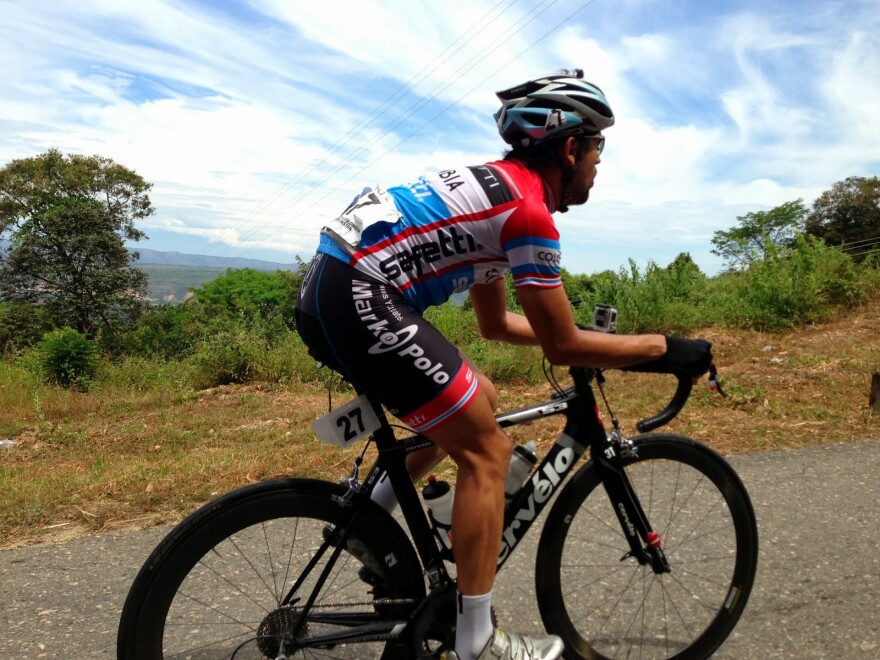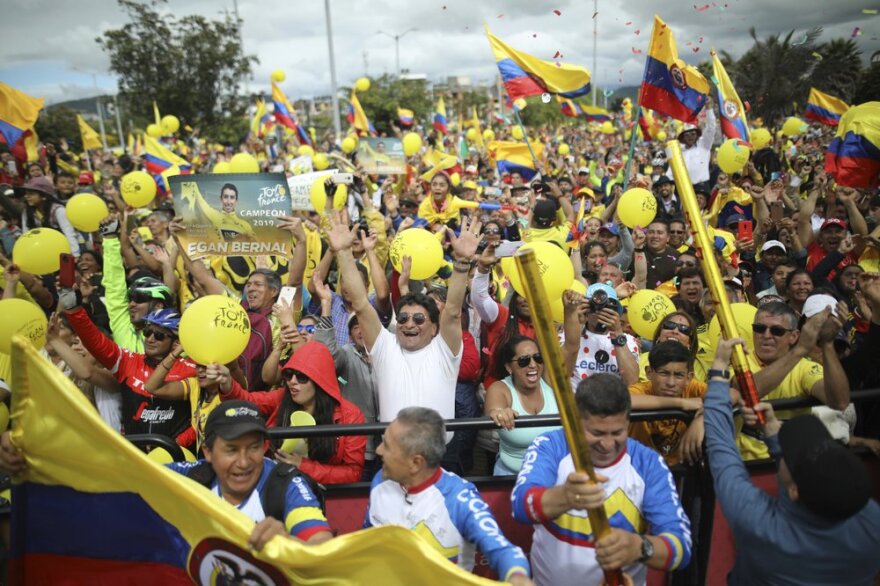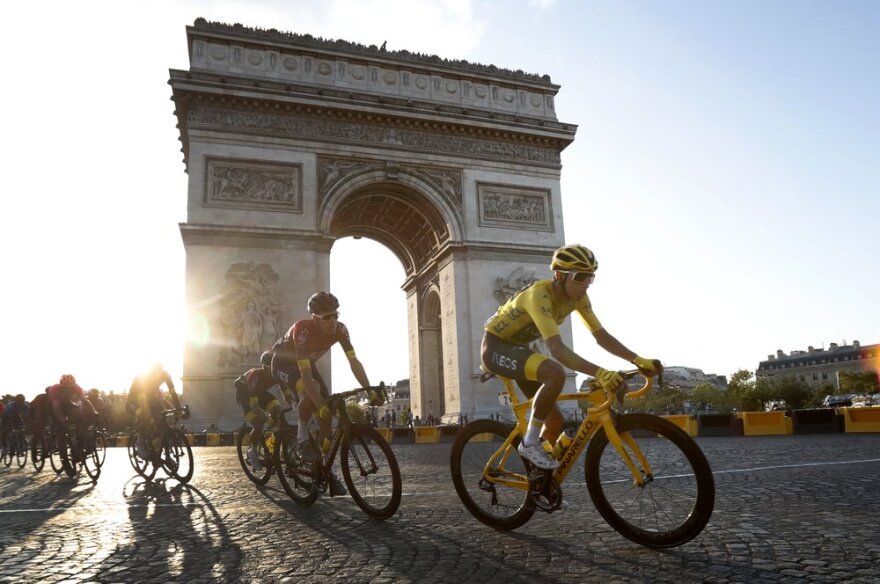In Paris last week, Egan Bernal became the first Colombian – and the first Latin American – to ever win the Super Bowl of cycling: the Tour de France. At one point during his victory ceremony near the city’s Arc de Triomphe, an NBC sports commentator mused that “the Colombians have taken over” – and he may not have been far off.
Bernal, riding for the dominant, Britain-based Team Ineos, was hardly the only world-class Colombian to be rated a Tour favorite last month. His triumph means the rest of the world is now discovering what his countrymen have known for a century:
“The strong tradition and the importance of cycling as a culture in Colombia,” says Plantation resident Andres Ocampo, a native of Colombia’s capital, Bogotá, who came to Florida 20 years ago and bikes about eight hours and 180 miles a week on his Cervélo S3.

Ocampo, a director at his family’s tropical food imports firm in Fort Lauderdale, is one of hundreds if not thousands of devoted Colombian cyclists in South Florida. Most if not all of them won’t hesitate to tell you something else few of the rest of us know about their native country: cycling there is just as important as soccer.
Correction: “I think bigger,” says Ocampo, who enjoys returning to Colombia to take part in races where he says locals line the roads and treat even amateurs like him as heroes.
It’s why he and so many other Colombians crossed the Atlantic last month to watch Bernal and compatriots like Nairo Quintana rule the Tour. Ocampo says he took special pride in watching their more workmanlike rhythm – something he thinks sets Colombian cyclists apart.
“Generally speaking they don’t come from the upper classes,” says Ocampo. “So they have that approach to really be hard workers – they tend to put more force on each pedal stroke. Egan climbs incredibly fast. I was just screaming, ‘Colombia!’ I almost lost my voice.”
READ MORE: Colombia's Festive 'Clásico' Soccer Tradition Debuts in Miami
Ocampo notes that part about being able to climb so fast is key to understanding why Colombia is such a cycling powerhouse. It’s all about the country’s ubiquitous mountains – and the fact that its three largest cities (Bogotá, Medellín and Cali) were built in those mountains.
“To come in and out of those main cities you will have to go out the mountains,” says Ocampo. “But in Colombia the roads have always been very poor. So cycling became that cohesive glue that put together the country.”

Anyone who’s watched the success of African long-distance runners will realize the value of that high-altitude training for Colombian cyclists. The question is why it took so long for a Colombian to win the Tour de France’s famous yellow jersey.
One basic reason: Colombia – which only a few years ago ended a half-century-long civil war – is a developing country. In the past, it wasn’t exactly easy for a small-town cyclist like Bernal to acquire the $12,000 Piranello bike he rode in the Tour. But there may be another factor. As Ocampos sees it:
“In the late ‘70s and 1980s,” he points out, “the first wave of Colombians that [raced in] Europe performed very well. And all that faded in the ‘90s.”
DOPING ERA
That, not coincidentally, is when so many U.S. and European cyclists – including now disgraced Tour de France champion Lance Armstrong – started using performance enhancing drugs. Colombia may be notorious for cocaine, but back then its cyclists weren’t known for doping. There have been some doping controversies in Colombia in recent years; still, Colombian cycling fans insist they’re minor compared to scandals like Armstrong’s.
Cycling became the glue that put Colombia together. –Andres Ocampo
And now that cycling’s doping era is thought to be over, many Colombians say Bernal’s Tour victory is all the sweeter because – in their minds – it proves Colombians were better cyclists all the time.
“This puts Colombia’s name high up there for a change,” says Sunrise resident Nelson Martinez, who came to the U.S. 40 years from Medellín. “Cocaine used to be the only thing the world wanted to associate with Colombia. Maybe now they’ll know the country for its flowers, its music, its literature and most of all its cyclists.”
Today, at age 64, Martinez is still a leading member of a local cycling club called Team Galiz. He says every time he mounts a bike it’s good not just for his body but his soul – because it reconnects him with his homeland.

“It takes me back to where on Sundays the cities close roads to make ciclovías so everyone from kids to abuelos can bike,” he says. “It’s in our blood.”
Last week, as Bernal hoisted his Tour de France trophy, scores of Colombians here took part in one of Florida’s top road races, the Vuelta a Miami. Among them were Erdwin Buitrago, a trucker from Homestead, and his teenage son Juan David Buitrago – an accomplished youth cyclist who’s thinking of pursuing the sport professionally, especially now.
The Buitrago family came here shortly after Juan David was born in Bucaramanga, Colombia – and he says cycling helps him hold on to his own, more fragile ties to Colombia.
“Having Egan Bernal win the biggest competition in cycling is very amazing,” says Juan David. “It’s prideful when you go out wearing your Colombian flag on your shirt. It’s – it’s joy, you know? It’s special.”
And, he notes, it stands a good chance of repeating. Bernal – fittingly, given Colombia’s young presence at the forefront of the international cycling stage – is only 22 years old.




